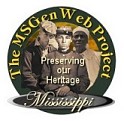Augustus Lotterhos, Father of Vegetable
Industry, Saw tomato abroad.
By Harrison
L. Saunders
Daily News
Special
Correspondent
The evolution of the vegetable
industry at Crystal Springs dates back to 1859, seventy years ago, for it was in
a small German village far across the waters that Augustus Lotterhos,
senior member of the present Lotterhos and Huber Company, Mercantile house and
largest shippers of fresh vegetables and tomatoes at Crystal Springs, saw his
first tomato growing.
The father of Mrs. C. M. Huber,
wife of the junior member of the present firm, had found a tomato seed
somewhere in Germany and had planted it in a flowerpot and the tiny plant had
been stuck and was bearing small red fruit which at that time were called “Love
Apples”. It was a curiosity in Mr. Lotterhos imagination and little did he
realize that the same “love apple” conceived in a flowerpot would make for him
a fortune in the distant America.
Several years later these families moved to the
United States, the country of opportunities, the oasis of the world. The ruler
of Destinies sent the Lotterhos and Huber families to Mississippi and Crystal
Springs, where Mr. Lotterhos has lived since and has seen and assisted
tremendously in the growth of a great industry and is known as the grand old
father and pioneer of the “Tomatropolis” of the world.
The first movement from Crystal
Springs was made up of peaches, grown and shipped by James Sturgis to New
Orleans and Chicago in the year 1870. At this time tomatoes were growing in
this territory, but they were all sizes, shapes, and forms and unfit for
marketing. The plants were never supported with sticks, and now, to keep the
stalk from falling to the ground laden with fruit. The land was not fertilized
and neither were the tomato plants pruned. Shipping this particular fruit was
an unheard thing.
N. Piazza was the first to
scientifically produce tomatoes. He imported his seed from Italy and the first
grown from these seed were more or less of an irregular shape. Later S. H.
Stackhouse obtained a small quantity of Acme Tomato seed, which he planted
and grew with excellent results and he was the first to ship tomatoes from this
point to northern markets.
However, all of the shipments at
this time were in small lots, probably a few crates constituted a consignment.
The first shipment moved in 1876 to Barnett Brothers, Chicago, Illinois.
From that time on the industry developed fast. It
was at this time that Mr. Lotterhos conceived the idea of shipping tomatoes in
carload lots to northern markets. In 1878, Mr. Lotterhos prevailed on the
growers of tomatoes to pool their products and ship in carloads. In this year
Mr. A. Lotterhos, having only a few years, prior to this time, seen his first
tomato, forwarded to Denver, Colorado, the first solid carload of tomatoes from
Crystal Springs.
In 1879 a few progressive men in
and around Crystal Springs, began in a small way to grow vegetables as an
experiment with the idea of following the example of tomato growers and shipping
these fruits in northern markets. The pioneers in this birth of a big industry
were: S.H. Stackhouse, F. M. Brewer, and John Hall. Mr. Brewer
was the first to grow peas, beans, and asparagus at Crystal Springs. These
vegetables were shipped almost exclusively to Chicago. Carrots, beets, and
cabbage were planted for the first time with a view of marketing and all of
these vegetables began moving in carlots.
In the early eighties, the first
strawberries were grown at this time netted the grower, S.H. Stackhouse $2.00 a
quart or $24 a crate of 12 quarts. With such prices, Crystal Springs developed
a large strawberry industry, but because of the inability of the railroad to
furnish refrigerator cars, which was necessary to transport them success---
Remainder
of the article is not available.
Note:
This article was taken the
Wednesday May 16, 2001 newspaper “ The Meteor” with the following editor notes:
“Copiah
trucking had inception in Germany in 1859”
(Editor’s note: This clipping from
The Jackson Daily News was found by Rita Brignac Bizzell of Cleveland,
among the possessions of her mother, Lena Mae Cook Brignac. Mrs. Bizzell
sent the clipping to Dorothy Alford who submitted it to The Meteor.
Apparently, the author is Pat Harrison’s nephew who lived on Pearl
Street in Crystal Springs. Unfortunately, the clipping is incomplete.



